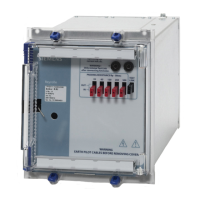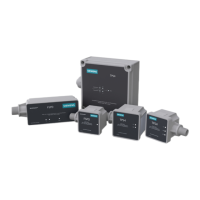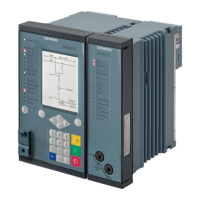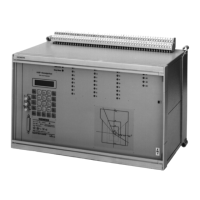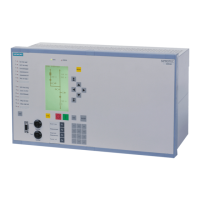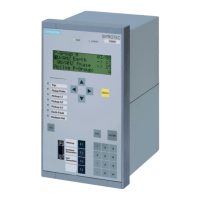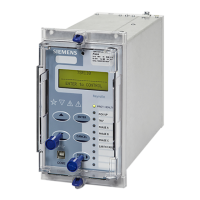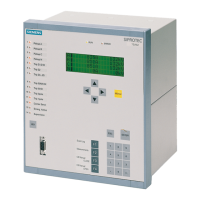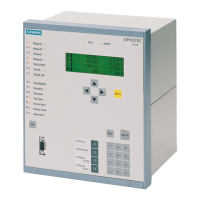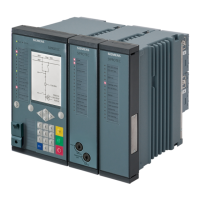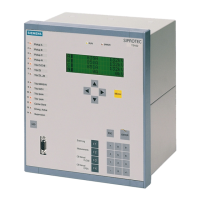Data Storage
The relay stores 2 types of data: Fault records and Event records.
Data records are stored in the non-volatile memory. The Data Storage menu contains the settings for clearing
events and faults.
Fault Records (Trip Log)
When the protection function detects a fault condition, a trip alert message appears on the LCD and fault
records are generated. Up to 10 fault records can be stored and displayed on the fascia LCD.
The fault record provides a summary of the following relay status:
•
Settings group
•
Element that issued the trip
•
Any phase/earth picked up
•
Fault magnitude
•
LED indications
•
General alarm
•
Date and time
The trip alert message is displayed until you acknowledge the fault.
The fault and event records provide the full sequence of events that results to a trip for analysis.
The fault records are stored in a rolling buffer with the earlier faults overwritten. The fault storage can be
cleared with the DATA STORAGE > Clear Faults setting in device HMI.
Event Records (Event Log)
The event recorder feature allows the time tagging of any status change (Event) in the relay. When an event
occurs, the actual event condition is logged as a record with a date and time stamp to a resolution of 1 ms.
The relay can store a maximum of 100 event records. When the operational log is full, any new record over-
writes the old records.
Stored events can be cleared by using the DATA STORAGE > Clear Events setting in device HMI or from
Reydisp Evolution software.
The following events are logged:
•
Status change of binary outputs
•
Status change of binary inputs
•
Status change of external trip input
•
Change of settings
•
Device startup and shutdown
•
Protection element operation
•
Critical or low battery
•
General alarm
•
Internal Relay Failure (IRF)
NOTE
Fault and event records must be downloaded or backup the settings, before uploading the device firmware.
2.9
Device Functionality
2.9 Data Storage
Reyrolle, 7SR46 Device, Manual 33
C53000-G7040-C103-1, Edition 10.2022

